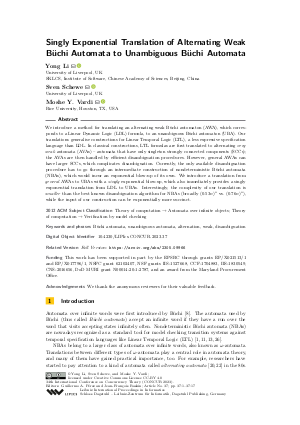LIPIcs.CONCUR.2023.37.pdf
- Filesize: 0.84 MB
- 17 pages

 Creative Commons Attribution 4.0 International license
Creative Commons Attribution 4.0 International license





Feedback for Dagstuhl Publishing